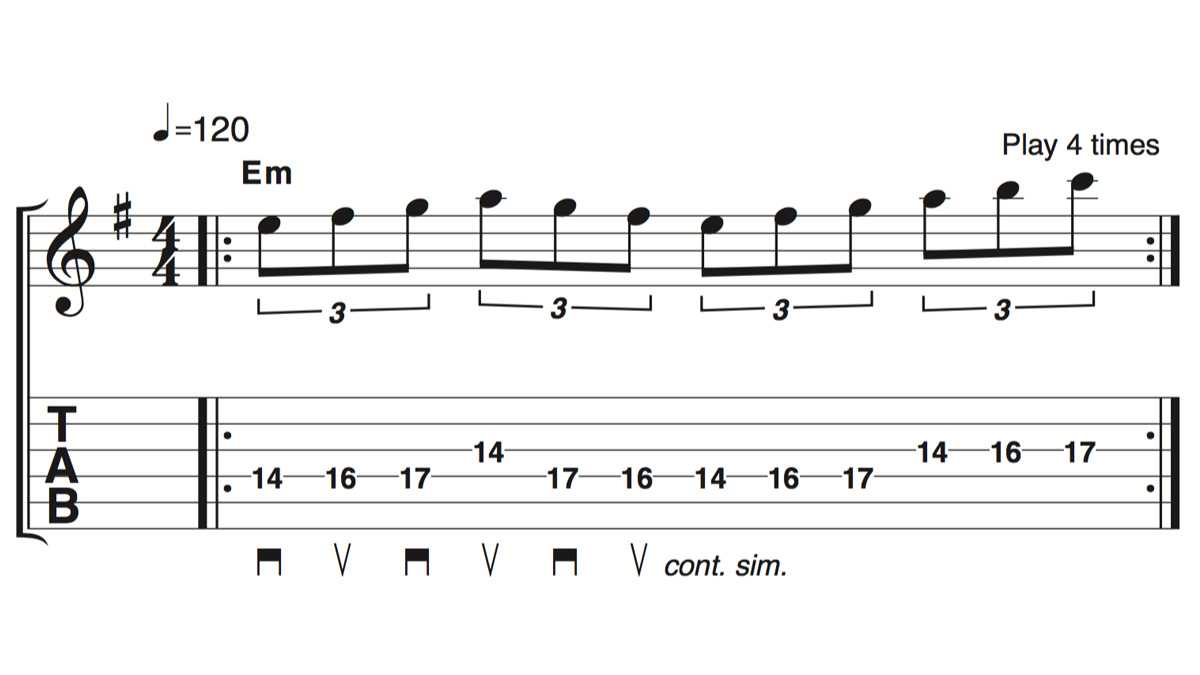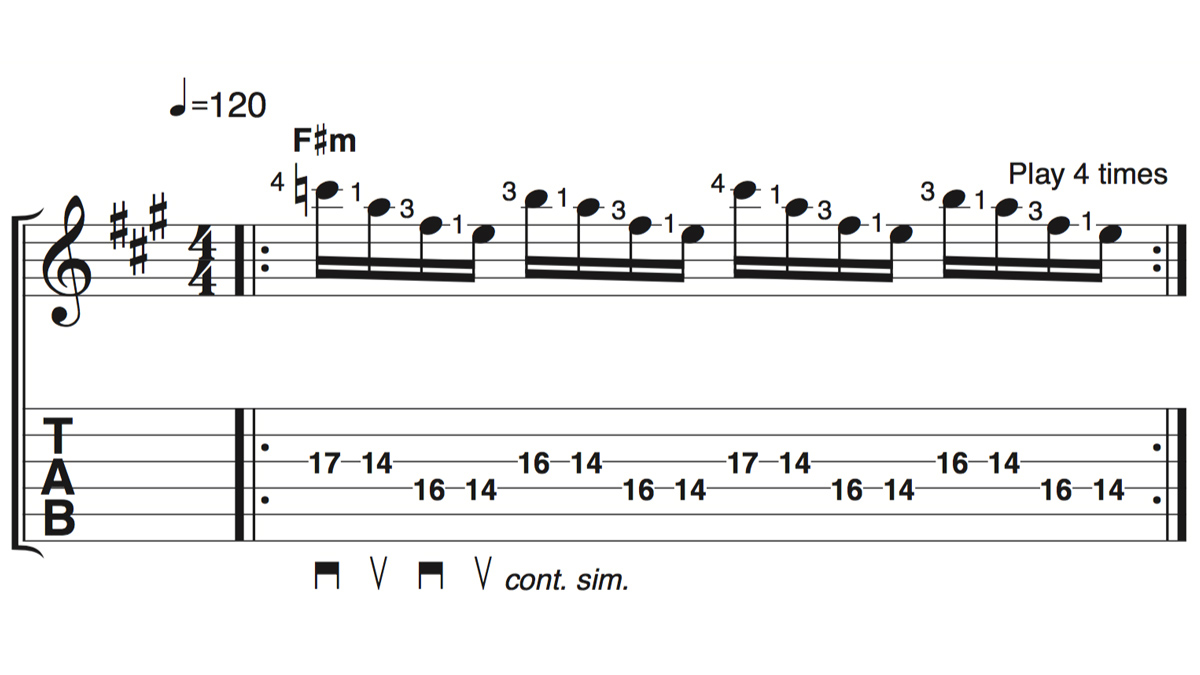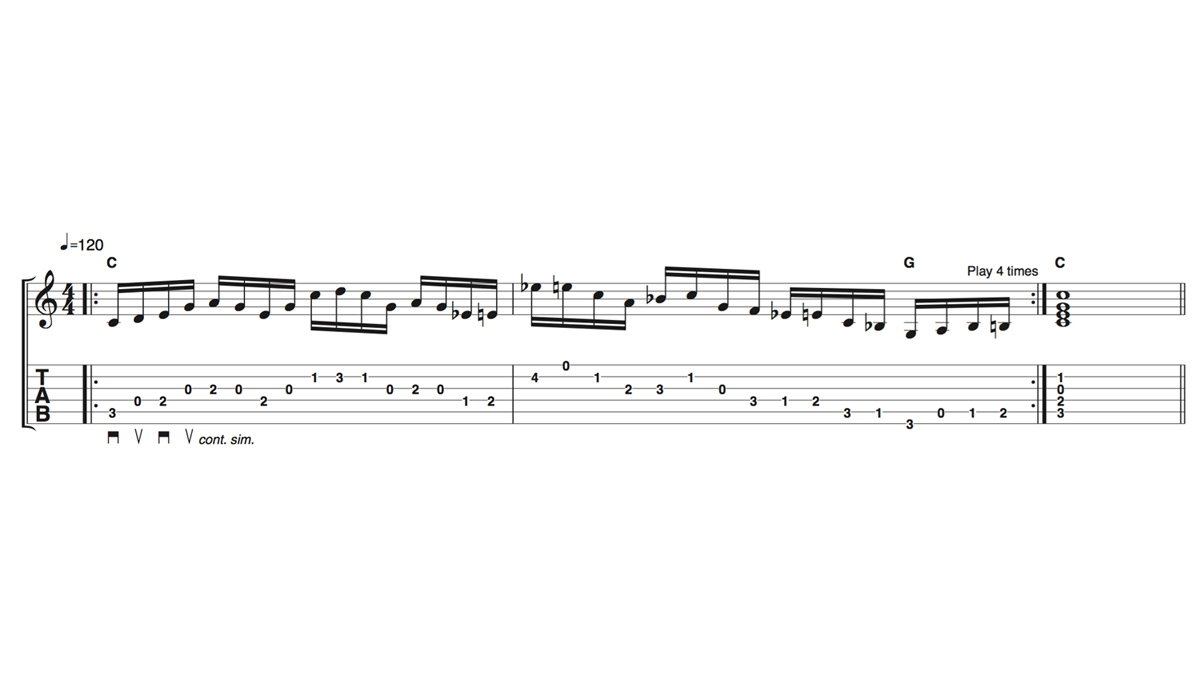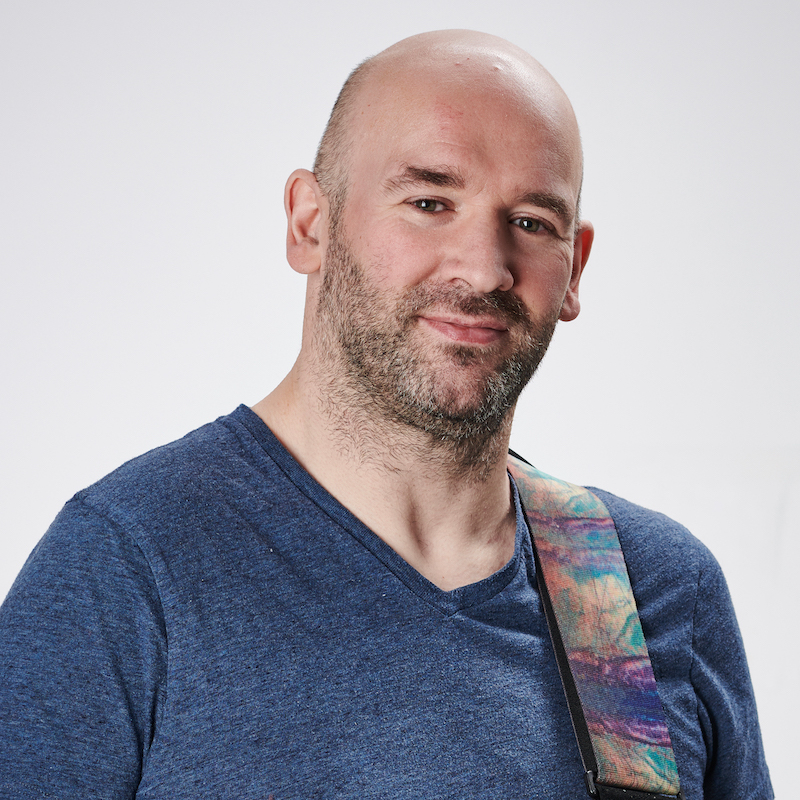Speed up your leads with this alternate-picking workout
Master this and watch your playing become faster and more effortless
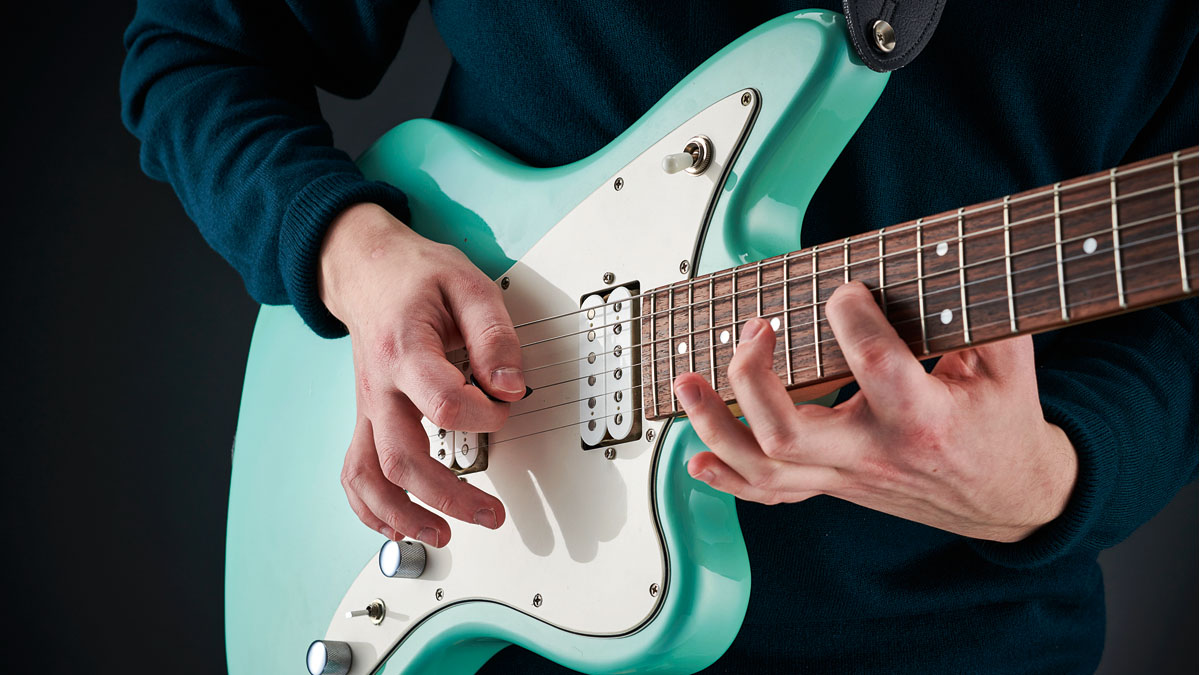
Just like strumming, alternate picking has down- and upstrokes at its core. Unlike strumming, this is more of a lead guitar technique, so we’re talking mainly about playing one string at a time.
Okay, this might not sound overly exciting but bear with us. How you pick massively affects your playing; get it right and your solos will soar!
In truth, it’s much like strumming – synchronise your downstrokes with the musical pulse and place your upstrokes in between. Follow our exercises to see improvements in both speed and timing
1. Pickerslave
Here we have two different six-note patterns on the middle two strings, each played with a sequence of alternating down- and upstrokes. Notice how the second grouping begins on an upstroke.
2. Pick Label
This Zakk Wylde-style lick has a two-note-per-string picking pattern. It’s quicker than the previous lick but each grouping begins on a downstroke, which can make it feel more natural.
3. Flatts pickin' – a challenge
This bluegrass-style lick will have you moving about from string to string – quite the challenge when you’re using strict alternate picking. Practice slowly and learn four or eight notes at a time, keeping your pick moving ‘down-up’ throughout.
Try flicking your pick away from the strings on the upstrokes to lessen the chance of hitting the wrong string on the downstroke.
All the latest guitar news, interviews, lessons, reviews, deals and more, direct to your inbox!
Start at 60-90 BPM, and just remember: ‘down-up, down-up’. Don’t veer from these picking directions.
Move onto 90-120 BPM. Now, the middle tempos are important. You should start to ‘feel’ the music now.
Finally, play it at 120-150 BPM. When you are alternate picking cleanly at this tempo, well, let's just say we're envious!
Chris was Editor of Total Guitar magazine from 2020 until its closure in 2024, when he became Lesson Editor for Guitar World, MusicRadar and Guitar Player. Prior to taking over as Editor, he helmed Total Guitar's world-class tab and tuition section for 12 years, helping thousands of guitarists learn how to play the instrument. A former guitar teacher, Chris trained at the Academy of Contemporary Music (ACM) in Guildford, UK, and held a degree in Philosophy & Popular Music. During his career, Chris interviewed guitar legends including Brian May and Jimmy Page, while championing new artists such as Yungblud and Nova Twins. Chris was diagnosed with Stage 4 cancer in April 2024 and died in May 2025.
